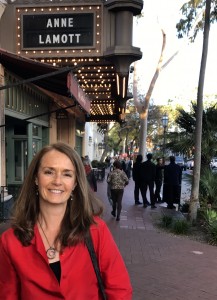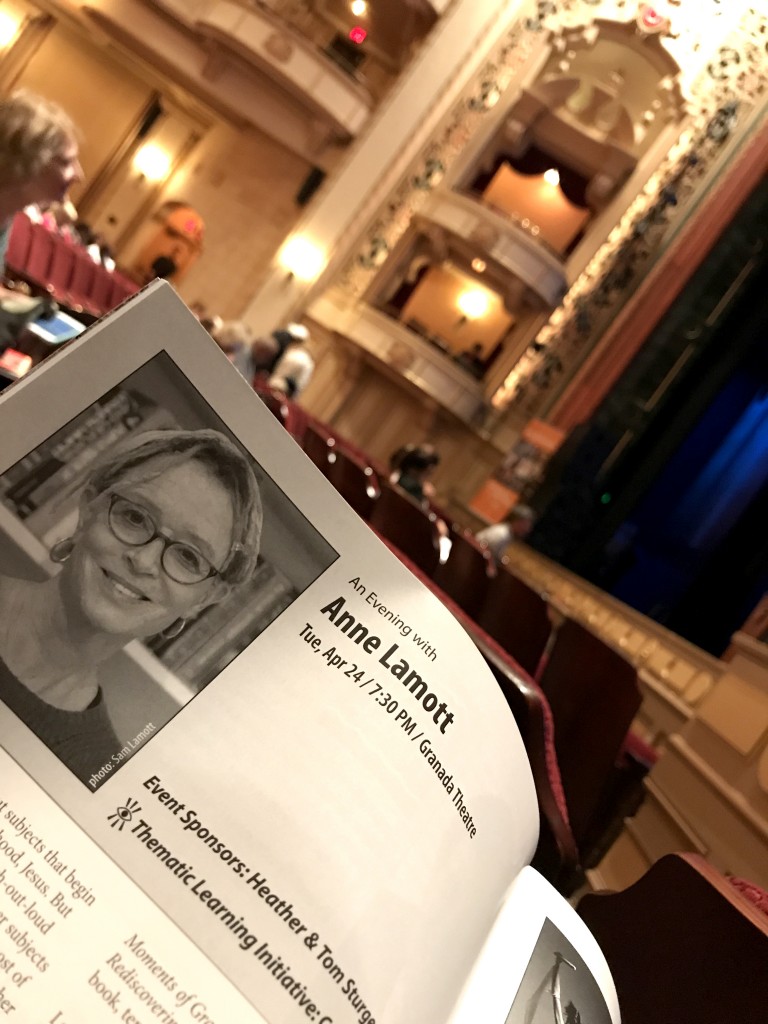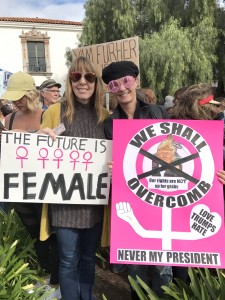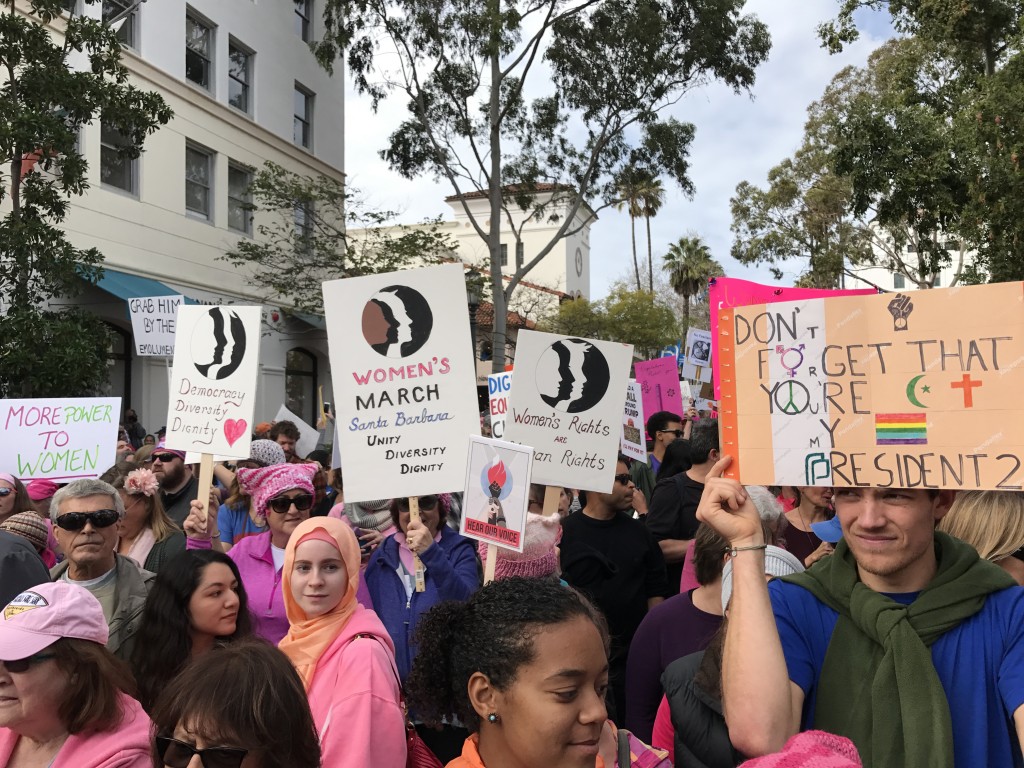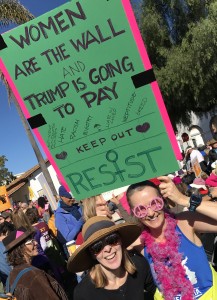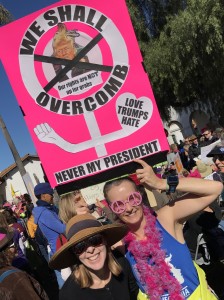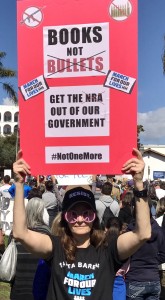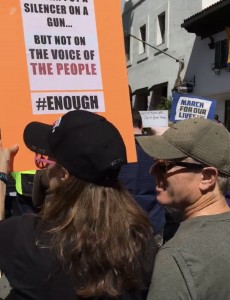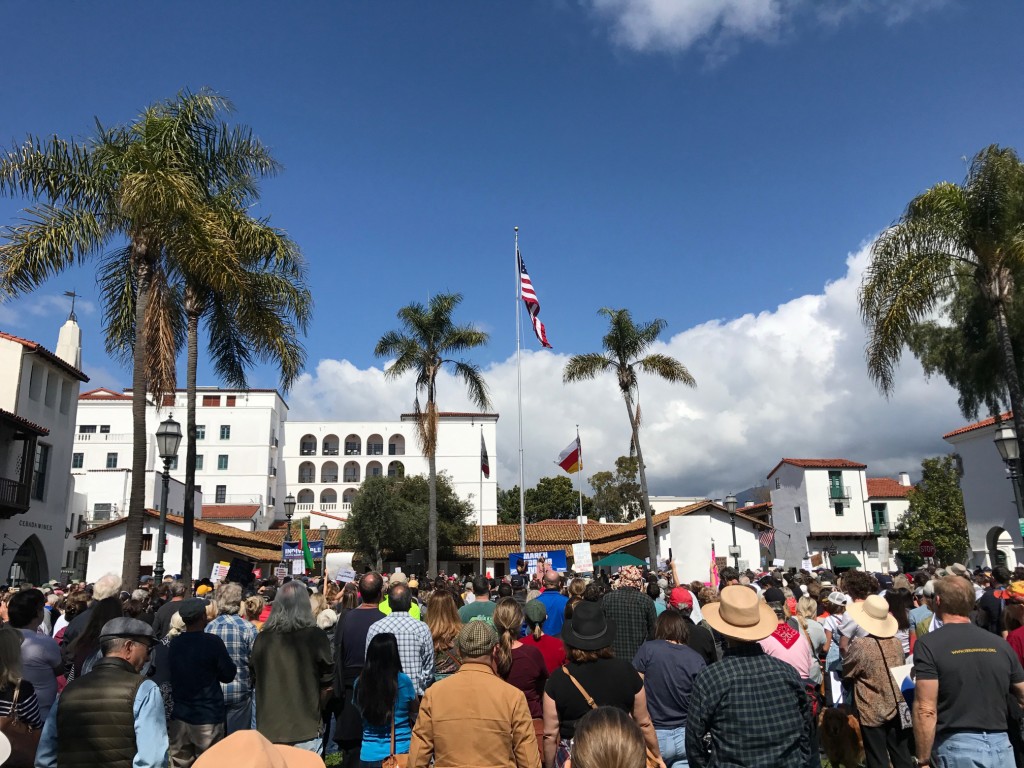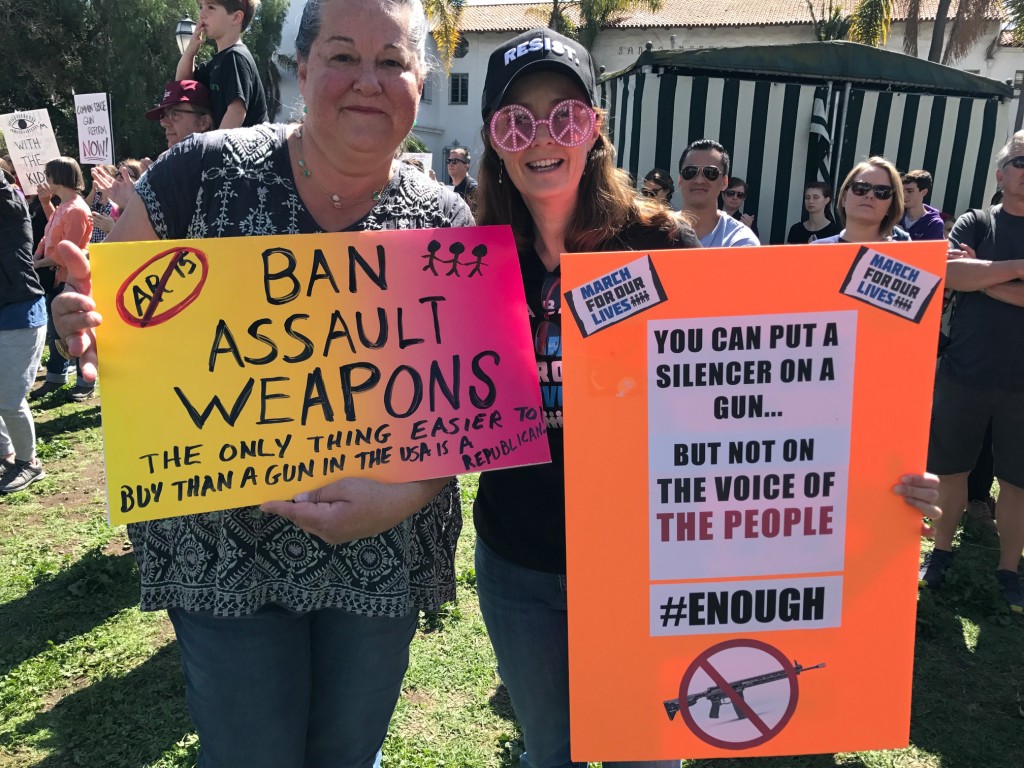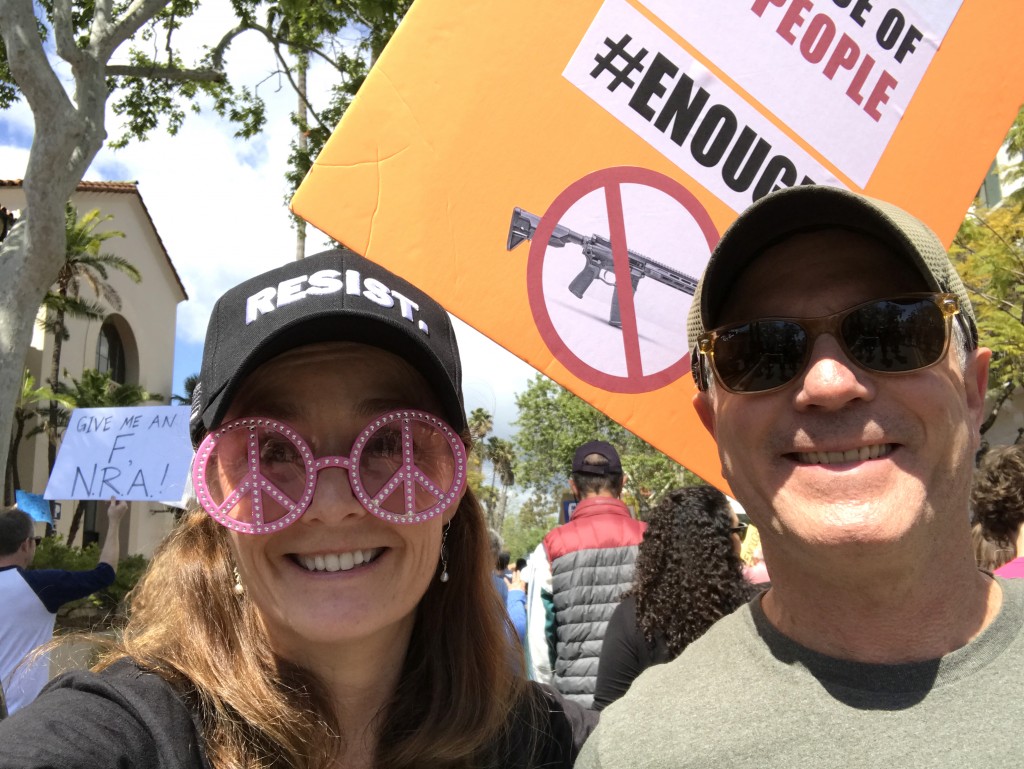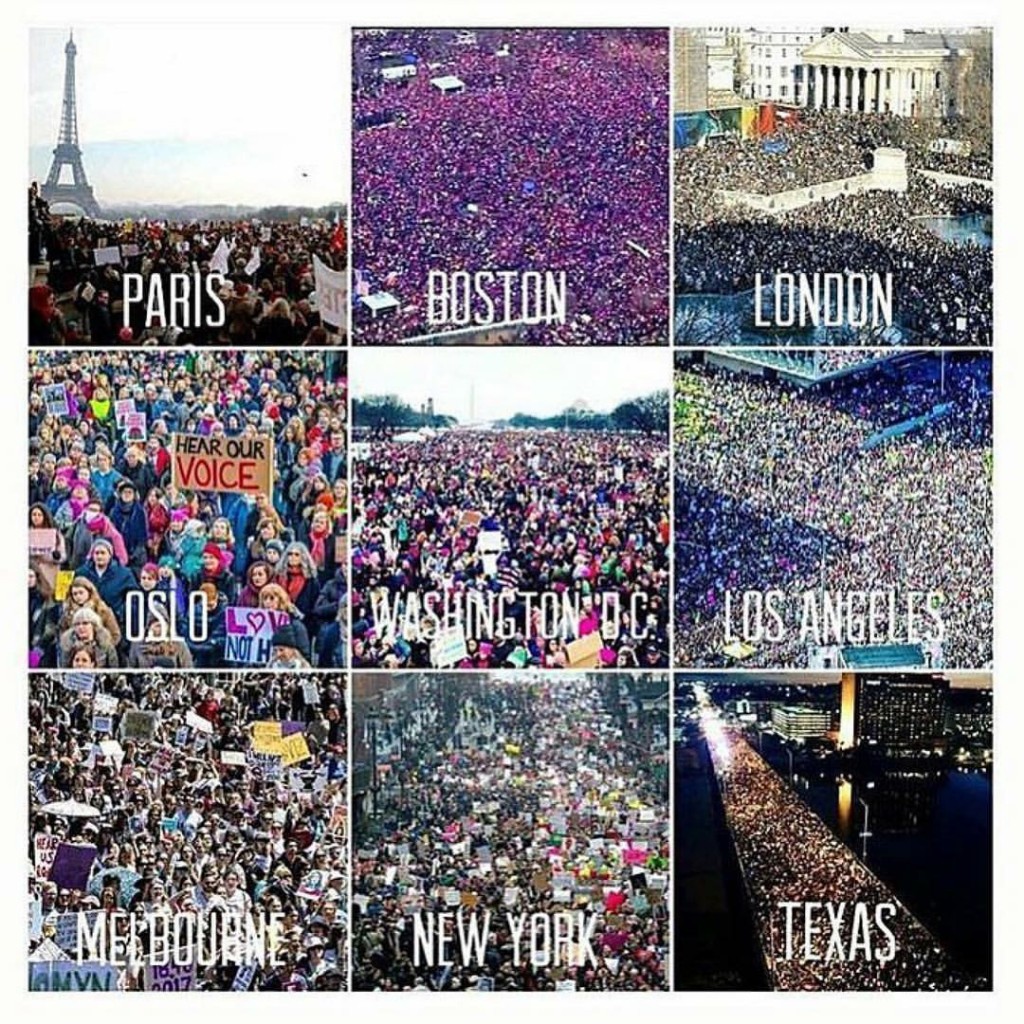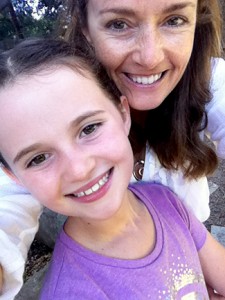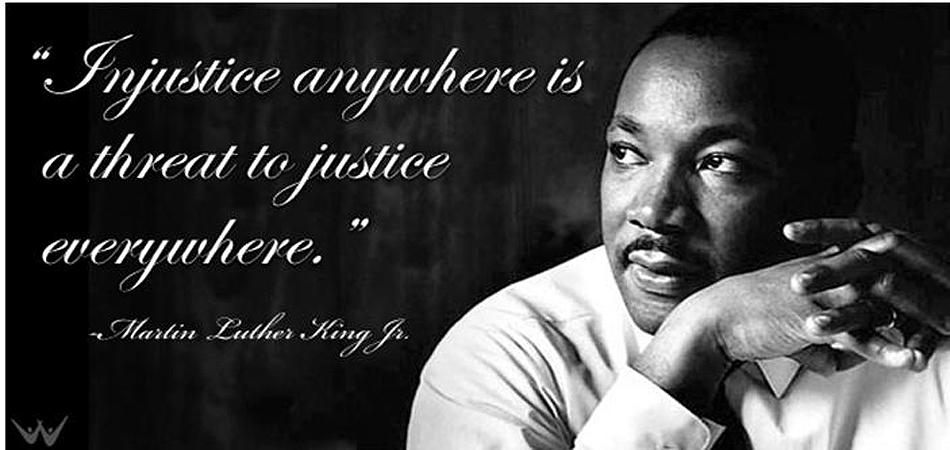It’s been an eternity since I’ve blogged, and there are numerous reasons, for which I’m sure many of you can relate, including multiple moves, caregiving, death, and of course the constant pull of life. There was also a year of Ironman training thrown in there along the way, as well as wildfires, mudslides and the completion of my first novel. More about that another day though.
Then there’s this—the incessant drumbeat of chaos and negativity that’s been swirling through our nation since November 9, 2016.
Having had the pleasure of listening to author, political activist and writing instructor, Anne Lamott, speak last week though, it reminded me of one simple thing: if you want to write, write.
Also, Do. Not. Give. Up. Hope.
Because her talk was the best dose of medicine I’ve had in a long, long time, I wanted to share it with you so we might dance in hope and inspiration together.
When bespectacled and dreadlocked Anne Lamott walked on to the stage of Santa Barbara’s grand dame Granada Theatre wearing jeans and a biscuit-clolored flowy blouse, I instantly felt at ease. Her authenticity warmed the audience like the knitted shawl she wore wrapped around her shoulders. When she opened her mouth, I knew we would be friends or life.
I’ve always enjoyed her writing, but what she brought last Tuesday night was something more than writing wisdom. It was soul food, and what I dearly needed to hear. Based on the reaction from the rest of the audience, it was something they needed to hear, too. We are not alone in our angst and worry, and we must never give up.
For fifty minutes Anne riffed on mercy, hope and writing, all the while reinforcing the notion that we’re all neurotic and vulnerable, and we’re all enough exactly how we are.
“Truth is rare in popular culture,” she said. “Be big, juicy and real. We are as vulnerable as kittens, the world is devastating, but be you. There are no codes to life…We’re all a little tense and vulnerable…When you look in the mirror, reclaim the delight of your own reflection.”
The idea is that if we lose our amour and open up our hearts, we allow a place for mercy and compassion for others and ourselves.
She said mercy means “Heart for other’s troubles and struggles,” and “Mercy is radical kindness,” which is the definition I related to most.
Mercy is what brought Anne hope, especially after the devastating election in which it has felt like we’ve been bullied and lied to for months and months and months as the environment, children, elderly, immigrants, minorities, journalism and our allies have all been marginalized.
What else brought her hope? The same things that brought me hope and many others: people standing up for what they believe in…the Women’s March, defending Dreamers, the #MeToo movement, the Parkland kids and all the kids around the nation fueling our hearts, giving us a second wind to push for changes in our gun laws.
Getting out there, signs in hand, marching for what we believe in, and being surrounded by others who care passionately about our country and our democracy gives us hope. We are not alone.
Action brings empowerment, and Anne reminded us that history shows that just one percent taking to the streets is how things have changed in the past.
One percent.
“Goodness bats last,” she said.
She also said, “Hope is medicine…and water…and the way home. When I laugh again, I’m home. When I’m home, I’m hopeful. Laughter is carbonated holiness…
Hope can be found in calling around. Find hope in your best friends. Get happy by taking care of people who are not even visible to the world…
Feed the hungry…
Go outside and look up. Nature is an elixir. It is where you find the divine…
Do things afraid and in bad moods, but do them…
We have to remember to hit reset and not have the comfort and familiarity of anger and annoyance.” This was an important reminder for me as I’m constantly yelling at the television news, cringing at the latest despicable offense coming from Washington.
Another favorite she attributed to someone else was: “Heaven is a new pair of glasses. When we put them on, we see the awful person, sometimes even ourselves, a bit more gently.”
And then came Anne’s thoughts on writing, which is why I originally went to hear her talk.
Here are a few nuggets…
• Write what you would love to come upon—the kind of book you’d love to read yourself. And read widely—the masters, poetry, everything. See how they did it. Learn from them.
• If you want to write, write. It will be hard–really hard–but if you don’t, you will have a deep sense of regret.
• Stop not writing. It’s a very addictive habit. Be available for this thing inside you that you have to say.
• Stop hitting the snooze button. You don’t know if you’ll be here tomorrow or next year. You can’t wait for perfect circumstances.
• Write a really shitty first draft (amen to that).
• Perfection is the voice of oppression. Do things less well, but do them.
• When you’re stuck, ask for help. You get to ask others to step into it with you. People love to share what they know. It’s a gift to share and give.
• Print out everything and read it. Do not read your work on a digital screen. Print and overprint (and then send money to the Sierra Club, she joked). Don’t cringe. She’s hugely pro-environment. This made me smile because I thought I was the only one who needed to hold paper in hand to really read something.
During the Q&A, she was asked…
“How do your book ideas come to you?”
She responded by saying: “By paying attention. Nothing is lost. Being receptive and available to tell your stories.”
Then she was asked to share some of her favorite books, which she drew a blank because there are just so many books. We can all relate to that, right? Eventually she listed a range of books and authors from Vonnegut, Yeats, and E.E. Cummings to Little Women and Little Men, Pippi Longstocking, Anna Karenina and Middle March. Poetry was high on her recommendation list as one can learn so much about how to write exquisitely with few words.
When she was asked which women were her heroes, she quickly rattled off a list of strong women: Gloria Steinem, Hillary, Margaret Atwood…
There was also a question about navigating grief, which hit home, since many people I know have recently lost loved ones, including our family.
She said, “Grief is the way home. It is the hardest and most blessed work we do. Our culture tells us to get over it. It makes people miserable to see someone in grief, but some deaths you never get over. When you lose someone, you go into the ‘Land of the Fucked.’ Your heart is literally broken. It’s like an anvil dropped on you. It’s excruciating—the most pain you’ll ever feel.” It took her years to come to terms with losses in her life, and the more she cried, the more peace she felt. The love and support of Hospice is what helped her most.
When talking about broken hearts, she reminded the audience of Leonard Cohen’s words, “Everything has a crack. That’s how the light gets in.”
Our lovely evening at the Granada ended with a rousing applause for someone who tells it like it is, leans heavily on her friends and faith, even though she’s appalled by Christianity, and reminds us that life is messy and magnificent. Afterward she signed her recently published book, Hallelujah Anyway: Rediscovering Mercy (as in even when things are totally shitty and falling apart, hallelujah anyway).
This blog post is way too long, and it’s far from perfect, but I’m going to take Anne’s advice and not feel oppressed by trying to be perfect. Instead, I’m going to revel in the joy of the writing process and reaching out to reconnect with you once again. Hallelujah to getting back on track.
Until next time, my friends, I will leave you with one of my favorite Tibetan proverbs:
“The secret to living well and longer is: eat half, walk double, laugh triple, and love without measure.”
xo Becky
PS: If you feel like leaving me a comment, I’d love to hear from you! Have you read Anne Lamott’s latest book? Or which one is your favorite?

